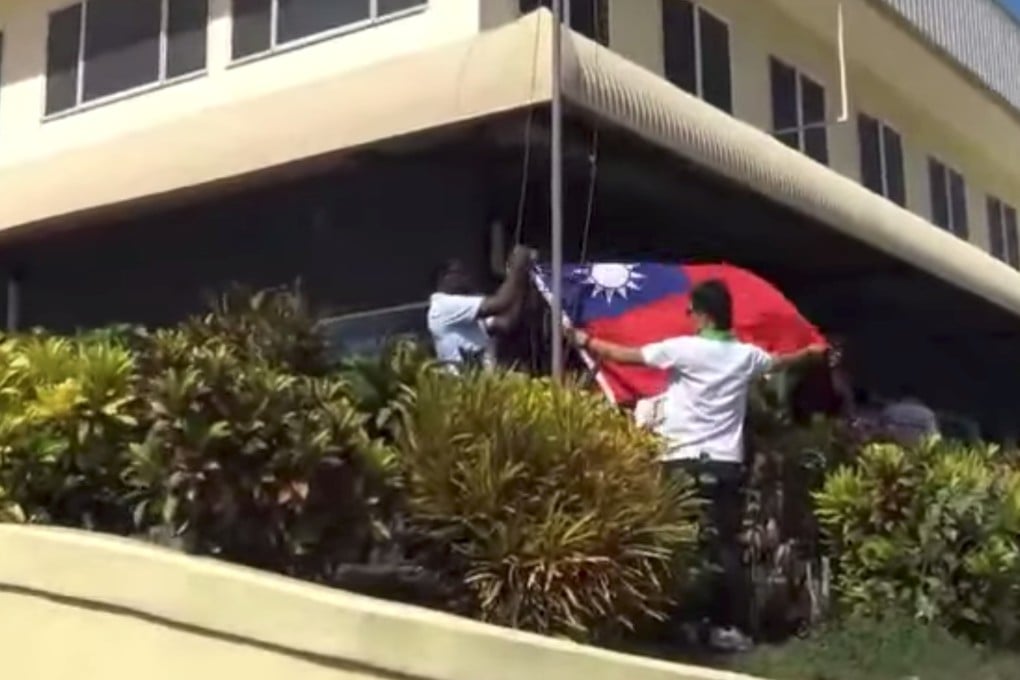US rallies behind Taiwan after island loses more Pacific allies
- Senior American diplomat says she will go to Taipei to consult on ‘Apec-related’ issues
- Official testifies that Trump administration will continue to support a ‘democratic success story’ and ‘reliable partner’

Oudkirk, State Department deputy assistant secretary for Australia, New Zealand and the Pacific Islands, told the US House Foreign Affairs Committee on Thursday that she would go to Taiwan as the US senior official to the Asia-Pacific Economic Cooperation (Apec) forum, being held this year in Chile in November.
Asked whether US officials would travel to Taipei to show American support for Taiwan after the Solomon Islands and Kiribati cut ties, Oudkirk said she would be making the trip to “consult with them on Apec-related issues”.
Oudkirk said Taiwan was a “democratic success story” and a “reliable partner” that US President Donald Trump’s administration would continue to support, particularly in helping Taiwan retain its diplomatic partners in the Pacific.
“We believe that China’s active campaign to alter the cross-strait status quo, including by enticing countries to discontinue their diplomatic ties with Taiwan, is harmful,” she said in her testimony. “This effort undermines regional stability, it undermines a framework that has been established for decades, and that has enabled peace, stability, and development across the Indo-Pacific.”
Taiwan has lost seven diplomatic partners in the past three years during Tsai Ing-wen’s presidency, leaving it with 15 formal allies as it prepares for a presidential election in January. Beijing – which claims sovereignty over the self-ruled island and has not ruled out the use of force to bring it into its fold – has tried to squeeze Taiwan’s space on the international stage.